
Beginner's Guide to Keeping Freshwater Puffers as Pets
Freshwater pufferfish can make really neat aquarium pets! However, not all of the information on the internet about puffers as pets is accurate.
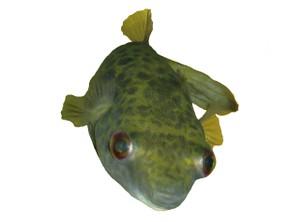 If you've already tried your hand at keeping a tropical fish tank and you're looking for something more interesting, then you should definitely check out freshwater puffers! There are quite a few true freshwater puffers (around 40 species) to choose from, and they make very engaging, interactive aquarium pets. However, freshwater puffers are not considered a beginner fish because they have special care requirements.
If you've already tried your hand at keeping a tropical fish tank and you're looking for something more interesting, then you should definitely check out freshwater puffers! There are quite a few true freshwater puffers (around 40 species) to choose from, and they make very engaging, interactive aquarium pets. However, freshwater puffers are not considered a beginner fish because they have special care requirements.
For instance, puffers need to be fed a special diet so that their teeth don't grow too long - if this happens, your puffer will end up starving unless you manually file down their teeth. Additionally, puffers should ideally be kept as solitary fish - they don't make good additions to a community tank.
If you keep your puffer with other fish, you will most likely run into quite a few problems, like your puffer eating all the other aquarium residents, or starving to death because they aren't fast enough to compete for food - all of which can be prevented by giving your puffer their own tank!
What do I need to feed my puffer?
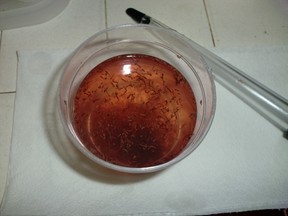 There are quite a few types of food that are great for puffers - like snails, shrimp, crabs, and fish fillets. You can also offer your puffer frozen fish food, like blood worms and krill.
There are quite a few types of food that are great for puffers - like snails, shrimp, crabs, and fish fillets. You can also offer your puffer frozen fish food, like blood worms and krill.
Unfortunately, many pet stores will recommend feeding puffers feeder goldfish, which is a very unhealthy diet for any aquarium fish. In addition to being a very fatty meal, feeder goldfish can potentially carry harmful parasites that can kill your puffer.
If you have a truly piscivorous puffer (fish eating), then you should consider breeding your own source of feeders - like guppies. As long as you keep your feeder tank healthy, then there will be less risk of introducing harmful parasites and other diseases into your puffer tank.
The guide teaches you all the basics of puffer care, like how to feed them correctly, the best way to set up a puffer tank, and how to treat common health problems that puffers run into! It's a total of 70 pages, and it includes beautiful photos and illustrations with each detailed care description.
If you'd like to learn more about the contents of the guide, check it out HERE.
Can I keep puffers together?
Most freshwater puffers do best when they are kept alone - there are a few exceptions, but if you're new to keeping puffers then it really isn't recommended. This a very important thing to take into consideration before purchasing a puffer - to many, dedicating a whole tank to a single fish seems like a waste of space.
Make sure you're getting a true freshwater puffer!
Many pet stores mislabel them
While there are definitely true freshwater puffers, many pet stores either have brackish water species mislabeled as freshwater, or they are under the misconception that all puffers require salt in their water. A good example of a commonly mislabed puffer is the Green Spotted Puffer - these are actually a brackish water fish, which means they require salt (actual marine salt, not aquarium salt).
The best thing you can do if you are interested in getting a puffer as a pet is to do your research beforehand - this will help ensure your puffer lives a long, healthy life, and it will also prevent potentially expensive unexpected surprises along the way.
What's your favorite freshwater puffer?
You might also like
Choosing a Betta Fish for Your ApartmentBettas make perfect pets for small spaces, such as dorm rooms, classrooms, an...
Pest Snails in the AquariumFor some people, pest snails are one of the most frustrating fish problems. P...
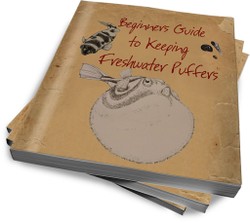

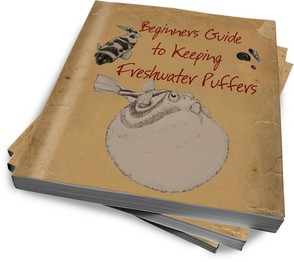

 Cycling a Freshwater Pufferfish Tankon 06/01/2011
Cycling a Freshwater Pufferfish Tankon 06/01/2011
 Pest Snails in the Aquariumon 06/02/2011
Pest Snails in the Aquariumon 06/02/2011
 Why Do I Have Black Algae in My Fish Tank?on 06/02/2011
Why Do I Have Black Algae in My Fish Tank?on 06/02/2011
 Prevent Constipation by Feeding Organic Peas to Goldfishon 06/01/2011
Prevent Constipation by Feeding Organic Peas to Goldfishon 06/01/2011
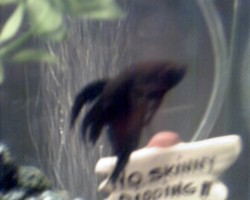
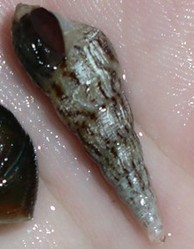
Comments